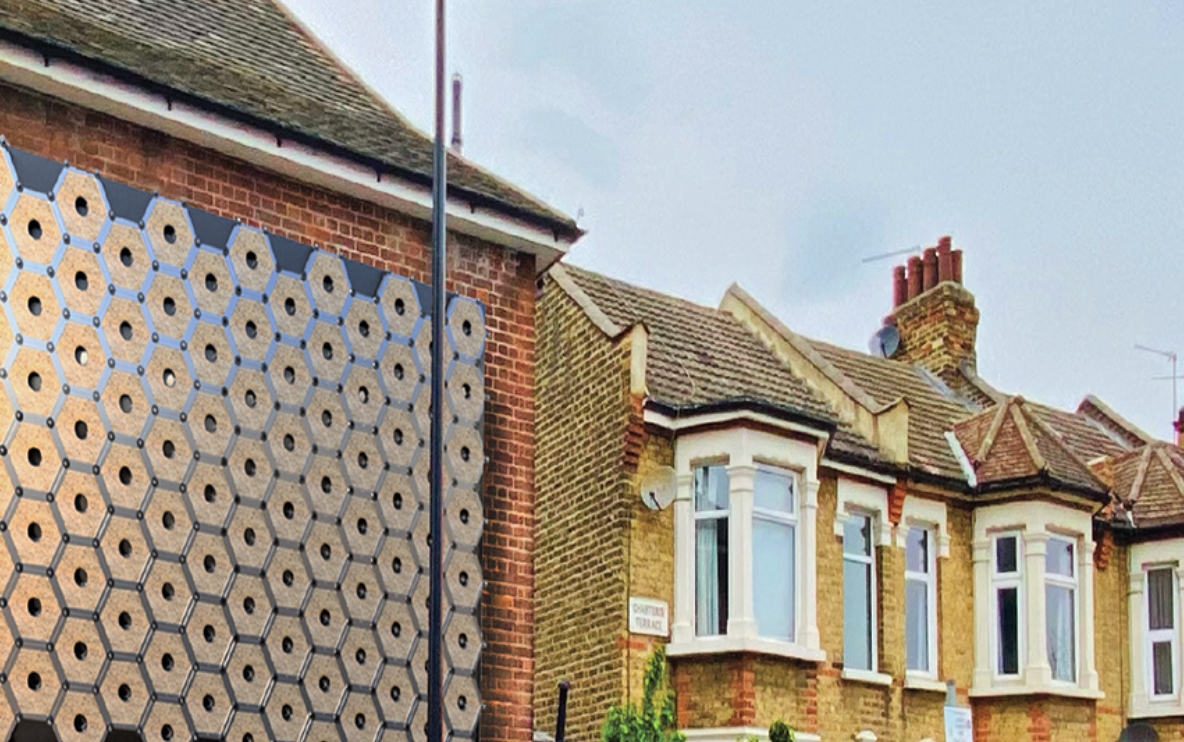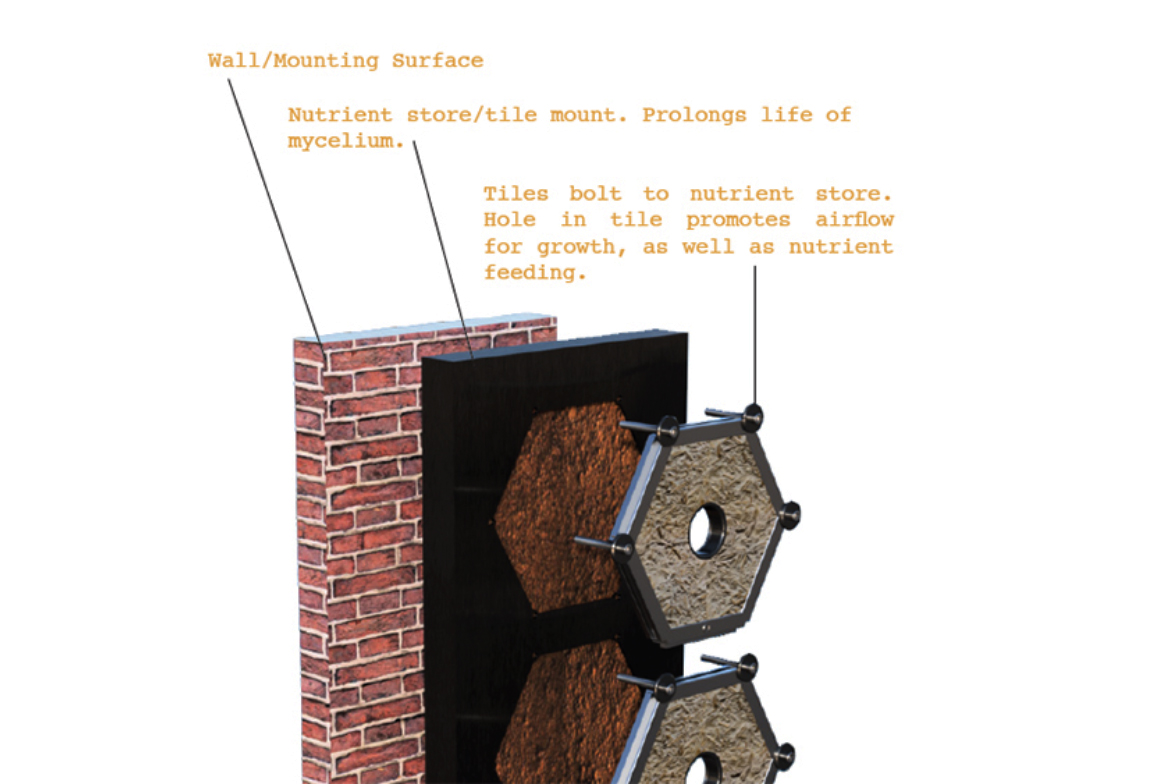Magic mushrooms to combat air pollution
A Brunel University student has developed a fungi-filled tile that could help improve air quality in urban areas

Thomas Sault, a design student at Brunel University in London, has designed a honeycomb tile made from mycelium - the part of mushrooms you don't see as it grows underground. Modular Myco-Hex tiles could absorb harmful hydrocarbon air pollution, improving the environment and human health
Futuristic fungi-filled wall tiles could devour harmful hydrocarbon air pollution caused by traffic emissions and burning fossil fuels.
That’s the vision Brunel Design student Thomas Sault is close to achieving with these honeycomb tiles made from mushroom mycelium.
Hydrocarbons in the air can cause cancer as well as skin conditions such as acne, psoriasis and even skin cancer.
Modular Myco-Hex tiles stuffed with an absorbent mix of fungal spores and waste sawdust may offer a solution. Fungi can break down 80 per cent of the carbon they absorb and turn it into food. When the mycelium-fused fungi grows, it safely absorbs hydrocarbons, helping create cleaner air in towns and cities.
A Netflix documentary 'Fantastic Fungi' inspired final-year Sault, 21, who's in his final year studying BA Industrial Design & Technology, when he was set the challenge of finding a way to combat skin-damaging air pollution: 'It opened my eyes to the amazing properties of fungi. For example, oyster mushrooms can naturally clean up oil spills by breaking down hydrocarbons to use for energy.'
Lecturer Ayca Dundar says Myco-Hex tiles are a 'great example of biomimicry. It's using nature to solve a global problem that is also fully sustainable and renewable.'
Newly unveiled as a prototype, Myco-Hex tongue and groove tiles click together. They're cheap to make, sound-proof, fire-retardant and can be mounted outdoors, such as on billboard hoardings or in school playgrounds. As well as sawdust, the mycelium could be fed food waste such as coffee grounds to keep it growing healthily.
'For so many years, humans have worked against nature and slowly destroyed it,' says Sault. 'But we need to look to nature and find that it contains the answers to the environmental problems we've made.'
